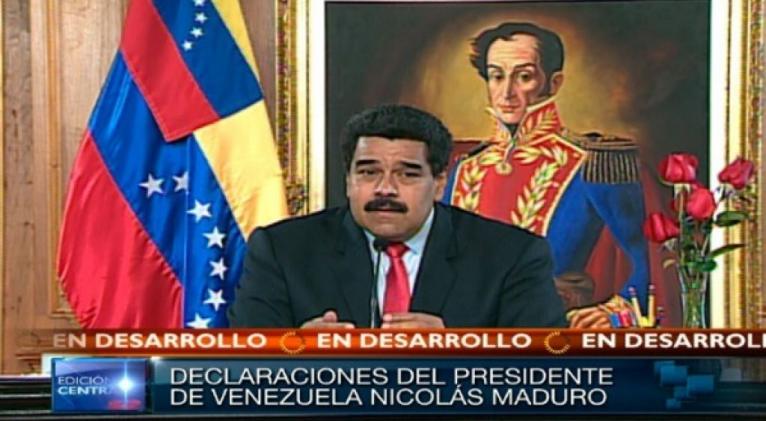Maduro Announces 'Five Big Revolutions' in Venezuela, Overhauls Cabinet
especiales

In declarations to the country on Tuesday night, Venezuelan president Nicolas Maduro announced what he described as "five revolutions", as part of a need to "improve our service to the people."
Maduro said the revolutions would be a "a new way of functioning" for the government, and emphasized the need for a more "efficient" government.
The following five revolutions, he said, "should be united, and should define the government policies, giving power to the people, it will be the people who push government policy."
The first revolution that Maduro outlined is the economic revolution, promoting production, "in order to guarantee stability".
"All the efforts of the government should be concentrated on this, to make this revolution successful," he said.
The second revolution is the knowledge revolution, involve science, technology, and culture. "I call on all of Venezuela, on the youth, students, teachers, to be part of this revolution, to be part of the country´s social development, its spiritual development, forming a new ethics for a new society," Maduro said.
The missions are the third revolution. Maduro emphasized their importance in "building socialism, creating the new society, where social rights and life are guaranteed."
The fourth revolution involves state policies and "creating a new state, one that´s really democratic, one that´s about justice, and rights." It aims to transform all governmental structures, and end with what "remains of the bourgoise state." Maduro emphasized the importance of the fight against corruption.
In this fourth revolution he also announced a range of new ministers and structures. Maduro announced a timeline for social movements to elect "popular presidencial councils", including for communes, women, youth, culture, and workers. Elections will be held during September and October.
In terms of the new ministries, they will be restructured, with some combined, and many falling under "vice-presidencies". The vice-presidency of economy and finances, for example, will group together six ministries. Of these, the minister for petroleum will no longer be Rafael Ramirez. Ramirez will now be the foreign minister. Isabel Delgado is the new minister for trade, Jose Cabello for industry, Giuseppe Yoffreda for transport, and Jose Berreteran for agriculture. Andres Izarra will remain as minister for tourism. There will also be a vice-presidency of security and food sovereignty. The ministries of higher education and the ministry of science and technology will be combined, and headed up by Ricardo Menendez.
Maduro said the fifth revolution was one of "territorial socialism". He explained that it was about consolidating the communal model, and creating a "new eco socialist model".
"It´s not about environmentalism, its about ecosocialism, environmentalism isn´t enough," Maduro stated.













Add new comment